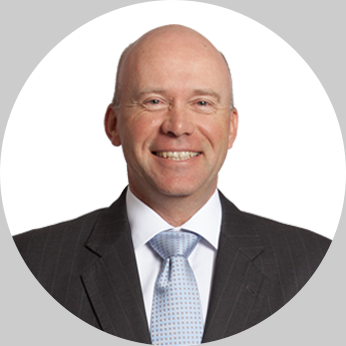Letter from the CEO - Q4 2020
This article was first published in the Quarter 4 2020 edition of Consider this. Click here to download the complete edition.
It’s been over seven months now since we’ve been grappling with the impact of the Coronavirus pandemic, and while some global financial markets have regained their health, we can’t say the same for societies. After such a lengthy period of lockdowns and social restrictions, it’s not surprising that we see increasing tensions between public health and wealth concerns, amid accelerating “second waves” of the virus around the world.
Until there is a vaccine, governments are going to have to work hard to keep the public focused on managing their risks, while still being able to reap the rewards of economic activity. The unfortunate reality is that South Africa’s weak domestic economy and extraordinary levels of unemployment mean that we simply cannot afford new lockdowns that restrict economic activity in any material way. Protecting public health in South Africa’s case, and we’d argue across the world, can only be achieved by behavioural change towards continued social distancing. This is currently proving difficult in many countries across the world, as policymakers and different groupings in societies argue about the trade-off between saving lives vs livelihoods (which can be shown to translate to even more “years-of-life-lost”).
This has resulted in a “tug-of war” between caution and optimism during the third quarter (Q3) of 2020 and was reflected in continued volatility in both global and local financial markets: bearishness over higher global “second waves” of the Coronavirus pandemic offset to some extent rising optimism over the development of an effective vaccine and the economic rebounds experienced as economies exited the initial round of lockdowns. Financial markets were generally positive across both equities and bonds, helped by ongoing supportive monetary and fiscal policies, although the gains were far lower than the exceptional rallies seen in Q2.
South African financial markets underperformed their global counterparts but were marginally positive, helped by further opening of our economy under Lockdown Level 1, higher commodity prices and exceptionally low interest rates. This was despite the country posting a shocking 51% q/q contraction in GDP in Q2 2020. GDP is now expected to contract by 8.2% in 2020, before rebounding by 3.9% in 2021 and 2.6% in 2022. Over the July-September period the FTSE/ JSE Capped SWIX Index returned 1.0%, the All Bond Index returned 1.5% and the Inflation-Linked Bond Index returned 1.2%, while cash (as measured by the STeFI Composite) also produced 1.2% for the three-month period.
The local equity market finished in the black thanks solely to Resources stocks, with other sectors losing ground as “SA Inc” counters came under more selling pressure. The Resources 10 Index returned 5.7%, Financials -1.6%, Industrials -2.3%, and Listed Property (SAPY Index) was the poorest performer with -14.1%. In the accompanying table you can see that Prudential’s unit trust performance reflected these subdued asset class returns over the quarter. Positive short-term returns continue to result in a recovery of returns from the depths of the market correction in March 2020, and returns from 1 January 2020 across most funds continue to improve.
New Prudential Property Fund
In July, we launched the Prudential Property Fund, a new unit trust designed to complement our existing Prudential Enhanced SA Property Tracker Fund. The new fund is available to institutional investors (D Class), and we plan to open it to direct retail investors (A Class) in the coming months. The new Prudential Property Fund is actively managed as a valuation-based fund using the same investment process as our successful equity unit trusts, with the SA All Property Index (ALPI) as a benchmark. This is in contrast to our longestablished Prudential Enhanced SA Property Tracker Fund, which is benchmarked against the SA Listed Property Index (SAPY, which has a narrower universe than the ALPI), uses a more quantitative investment approach and is managed to take very small positions relative to its benchmark in accordance with the “enhanced index” nature of the Fund.
Reduction in annual management fees for more Prudential funds
As you might be aware, towards the end of last year we decided to reduce the annual management fees for several of our funds. During the most recent quarter we concluded the review of our unit trust fund fees, and announced reduced fees across three further Funds where we believed we could give our clients additional benefit of our economies of scale. As a result, from 1 October we implemented fee reductions of between 0.05% and 0.15% p.a. in respect of the Prudential Enhanced Property Tracker, Prudential High Yield Bond and Prudential Money Market Funds. This brings to eight the total number of funds where we have reduced our annual management fees since December last year.
Looking Ahead
These recent times have been disappointing for all investors. As co-investors with our clients, we certainly appreciate the concern that many savers are feeling. You may rest assured that the Prudential team are consistently focussed on our client portfolios. There is increasing evidence of valuations beginning to “bite”, as we can see from recent announcements of buyouts or share buy-backs from companies like Afrox and Naspers. We continue to position our portfolios to take advantage of assets that are priced to deliver exceptional prospective returns. As always, we hope you enjoy this Q4 2020 edition of Consider this, and welcome any feedback you may have.

Share
Did you enjoy this article?
 South Africa
South Africa Namibia
Namibia




 Get the Newsletter
Get the Newsletter